![]()
Logion 2: "Whoever searches must continue to search until they find.”

"Holy Spirit and Anthropology Moltmann has in fact developed a pneumatological anthropology which is in one sense comprehensive. Moltmann writes: The operation of God's Spirit "can be remembered by [human being] as a particular happening in the world through which God reveals himself in Jesus Christ.” But in faith the act of the Spirit becomes "the present of the world of the human being", for the present event of justification manifests the self-demonstration of the Creator in his Word, and gives the present world in general its particular quality. So experience of the presence of God's Spirit does not merely qualify the immediate self-consciousness. It gives the world of human beings its special quality too. Recognizing the importance of the pneumatological anthropology, Moltmann critiques the dialectical theology of Barth, Brunner, Bultmann, and Gogarten on the ground that it is unfruitful. Critiquing Barth, Moltmann argues that the real phenomenon is to be found neither in the Spirit's immanence nor in its transcendence, neither in the continuity nor in the discontinuity. It is to be found in God's immanence in human experience, and in the transcendence of human beings in God. For him Spirit is not simply the subjective side of God's revelation, and faith is not merely the echo of the word of God in the human heart. The Spirit is much more than that. It is the power that raises the dead, the power of the new creation of all things. Thus two things become clear in Moltmann's anthropology the Spirit's immanence and transcendence in human beings.” (Varkey 2011, Kindle 3944)
“What are you searching? Why are you aimlessly and listlessly running about? The joy that you have searched in material gains, the joy that you are looking for in power, the joy that disappeared in the words of books-the so-called knowledge-is all lost in yourself, and you are still searching and seeking! You can pay attention to everything outside, yourself! You are lost in your thoughts, like babes in the wood! But there is great hope that you can rise into the Heaven of thoughtless awareness, which we call Self-realization.
I invite you to this feast of Divine Bliss, which is pouring around you, even in this Kaliyuga, in these God-forsaken modern times. I hope you will come and enjoy the spiritual experience of the life eternal.
With all My love and blessings
Your Mother NIRMALA"
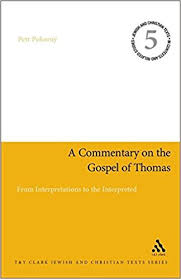
2 32,14b-19a
(1) Jesus says: “The one who seeks should not cease seeking until he finds
(2) and when he finds, he will be dismayed.
(3) And when he is dismayed he will be astonished
(4) And he will be king over All.”
This saying has its Greek parallel in P.Oxy. 654,5-9; the differences: “. . . will be [dismayed. When] he will be dismayed, he will be king. [And being king, he will attain re]st.”
The general exhortation to seek linked to the promise of finding is repeated in log. 92 (second sentence in 94) and is explicated by parables: seeking the largest sheep (log. 107), finding a big fish (8), finding a pearl (76:1-2), or seeking (76:3) and finding a treasure (109). The concept of seeking implies the notion that it is not the result of human activity and creativity but that passivity is not a proper attitude either. Seeking is the proper activity in relation to a precious subject, which is in this case identical with God and eternal life. Real life is sometimes compared to a path, but the concept of search is an even more precise expression of this deep movement.
Finding is the counterpart of seeking,9 but it is surprising that it is described as a shock: “When he finds, he will be dismayed, astonished.” This is the result of the encounter of a human being who has grown up in the alienated world with the holiness of God (mysterium tremendum). In the Greek version, the reaction is expressed by the verb thambeuomai, which can mean both admiration (Acts 3:11) and fear (Mark 10:24). The fact that in Coptic we find two verbs (to dismay = sterter and to be astonished = er spere) may be explained as an attempt to express both dimensions of the Greek expression. A parallel expression of astonishment from the mouth of Thomas appears in log. 13:4: “Teacher, my mouth cannot bear at all to say who you are like.” The Gospel of Philip promises that even the name Christian will evoke a similar reaction: “If you say, 'I am a Christian,' the [world] will tremble” (NHC II, 62,26-35[esp. 32-33]). This indirect reference to Jesus can clarify our understanding of astonishment as a response to an encounter with God: it is an astonishment at the fact that God can ne encountered by humans at all: “Jesus says: If the flesh came into being because of the spirit; it is a wonder. But if the spirit (came into being) because of the body, it is a wonder of wonders” (log. 29).
The person who is astonished is called “the ruler.” The translator decided on the expression “be king” as equivalent, since this has to be understood as a signal that the divine kingdom is being realized in the inner encounter with God. According to Luke 22:29-30, the disciples of Jesus will inherit the kingdom of God and become rulers and judges. They “will attain rest” (Greek, anapauomai). This is the passive dimension of becoming king. The rest is the counterpart of any activity; it is the content of the seventh day, of the Jewish Sabbath (Exod 20:8-11). In the Letter to the Hebrews 3:11, 18 (cf. 2 Clement 5:5) heavenly rest is identical with the kingdom of God. It is the fulfilment of human life (log. 51; cf. 90). Death is the end of life, while “rest” is the fulfilment of salvation (log. 60.6).
In the Coptic version the final step is the ruling over All. Since God is the Lord over All, to participate in his rule means to be king over All. The All clearly means the visible and invisible world (Eph 1:22).
A Commentary on the Gospel of Thomas
Petr Pokorny, T&T Clark; Reprint edition (December 22, 2011) p. 37-8
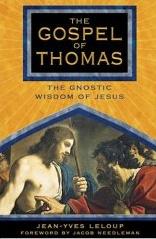
LOGION 2
Yeshua said:
Whoever searches
must continue to search
until they find.
When they find,
they will be disturbed;
and being disturbed, they will marvel
and will reign over All.
(Cf. Matt 7:7-8; Luke 11:9-10.)
This logion describes the major stages in gnosis, which constitute a true initiatory process.
The first stage is the quest; the second is the discovery; the third is the shock and disturbance of this discovery; the fourth is wonder and amazement; and the fifth is the presence and reign over All.
The last of these stages is spoken of in the Oxyrhynchus[2] manuscript (654, no. 1), where this reign over the All is further described as the great Repose. This is also echoed in the Gospel of Philip and in Clement of Alexandria (Stromata, Book II).
Some further elaboration on each of these stages may be useful.
1. Seeking
The seeker must always be on the quest. The truth is hidden so as to be found. As the prophet said, it is a"hidden God"Who invites us to participate in this great game of the quest.
An old rabbi explained it to his grandson in this way: "When you play hide-and-seek with your friend, imagine his disappointment and pain if he hides, and you simply stop looking for him.”
When we stop looking for the hidden God, we resign from the divine game. Yet this game, this quest, is what gives our life meaning.
Is not the whole history of Israel that of a game of hide-and-seek between a people and their God?
Thus the first stage on the path of initiation consists of rediscovering the thirst and taste for the game, the quest. It consists of becoming a seeker and remaining a seeker even after we have found, so as to experience the new and endless depths in what we have discovered.
2. Finding
In a sense, to seek is already to find. Otherwise, how could we ever have the idea to search, how could we be propelled by this desire, unless it were for something which we somehow already know? Surely we have all had moments in our lives that testify to this, moments of discovering the light (if only from a distant star), that had always been there, in the darkest of nights.
"You would not seek me if you had not already found me.”So the essential movement of the quest is a greater opening to what is already here. But we do not know it enough: "In your very center, there is someone you do not recognize," said John the Baptist to his disciples. In our very core there is a Presence that needs to be recognized and affirmed. Seeking/finding means being more and more open to the gift that has always been ours.
3. Being Troubled and Upset
The recognition of Being troubles us and upsets us, for awakening to this dimension forces us to question our ordinary, so-called normal view of the world. The experience of Being is a radical questioning of our view of reality, a view conditioned by the conceptual means with which we think we understand reality. This discovery that our habitual ways of conceiving the world are no more than that—habits—cannot occur without trouble and upset. The more we accept this trouble as a necessary stage in the evolution of our consciousness, however, the more we are led, little by little, toward wonder and marveling.
4. Marveling
In the fourth century c.e. Gregory of Nyssa said: "Concepts create idols of God of whom only wonder can tell us anything.”
The Greek philosophical tradition also saw wonder and astonishment as the beginning of wisdom. In our own time, Einstein remarked that only idiots are incapable of wonder—and we might define idiots as those who forsake their quest, thinking that they know.
The more we discover, the more we marvel and wonder. But these two are not some kind of romantic imagination or fantasy. For Einstein wonder lay in the fact that at certain moments the world becomes intelligible, that there is a possibility of resonance between our intelligence and the Cosmos, as if they were both animated by the same consciousness. Only after experiencing this wonder can we enter into the mystery of that which reigns over All.
5. Reigning over All
At this stage we no longer perceive ourselves as separate from the world, but instead as a space where it is possible for the Universe to become conscious of itself. I am One with that which reigns over All. The same Spirit, the same Breath, the same Energy that moves mountains and stars, moves me. Here, I see myself only as a particular expression among others of the same All that is One. Here, in the living interconnectedness of all things, I know the immensity of Repose.
6. In Repose
To Jews the meaning of the Sabbath is extremely important. After the time of work, of doing, of possessing, we must take the time to sit before God, to simply be.
The theme of repose is just as important to gnostics. At last, thinking and feeling are united in this consciousness that animates all things, and we can find true repose. What previously appeared as contradictory or in opposition now appears complementary, for a passage beyond duality has opened up. In the myriad reflections scattered upon all the ponds of the world, we discover a single moon.
This living nonduality is the peace and repose that is endlessly sought during all stages of the initiatory path. But the spiritual path requires us to live the quest fully and not to harbor fear or aversion toward trouble and upset, so that we find our home in this wonder and repose.
Jean-Yves Leloup, The Gospel of Thomas
Inner Traditions (2005) pp. 63-66
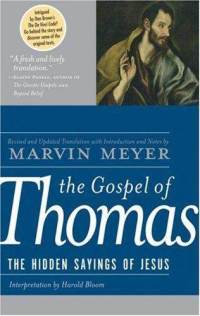
2 Jesus said, “Let one who seeks not stop seeking until one finds. When one finds, one will be troubled. When one is troubled, one will marvel and reign over all.”
"Jesus said": Here and elsewhere such a Coptic quotation formula may be translated"Jesus says" (compare the quotation formulas in Greek, in the present tense).
"Let one who seeks ...”: Versions of this saying are also known from the Gospel of the Hebrews and the Book of Thomas.
One who has marveled will reign, and one who has reigned will rest. (Gospel of the Hebrews 4a)
One who seeks will not stop until one finds. Having found, one will be astounded, and having been astounded, one will reign, and having reigned, one will rest. (Gospel of the Hebrews 4b)
[Blessings] on the wise person who has [sought truth, and] when it has been found, has rested upon it for ever, and has not been afraid of those who wish to trouble the wise person. (Book of Thomas 140,41-141,2)
Watch and pray.... And when you pray, you will find rest.... For when you leave the pains and passions of the body, you will receive rest from the Good One, and you will reign with the king, you united with him and he united with you, from now on, for ever and ever. (Book of Thomas 145,8-16)
Papyrus Oxyrhynchus 654.8-9, like some of the passages cited above, adds an additional stage to the process of seeking and finding: "And [having reigned], one will [rest].”In general, compare also Matthew 7:7-8 (Q) [This designation of Q here and hereafter indicates that this saying is regarded by scholars as having been included in the sayings gospel Q, the sayings source of the synoptic gospels Matthew and Luke.]; Luke 11:9-10 (Q); the Nag Hammadi tractate Dialogue of the Savior 20: "And [let] one who [knows] seek and find and rejoice.”Such stages in the process of discovering wisdom are known from Jewish wisdom literature. Thus Wisdom of Solomon 6:12, 17-20 outlines several stages involved in seeking and finding wisdom, and concludes that"The desire for wisdom leads to a kingdom.”
Marvin Meyer, The Gospel of Thomas: The Hidden Sayings of Jesus HarperOne; 2nd edition (October 9, 1992) pp. 78-9
(Papyrus Oxyrhynchus 654.5-9)
[Jesus says], “Let one who [seeks] not stop [seeking until] one finds. When one finds, [one will be astonished, and having been] astonished, one will reign, and [having reigned], one will [rest].”
Marvin Meyer, The Gospel of Thomas: The Hidden Sayings of Jesus
HarperOne; 2nd edition (October 9, 1992) pp. 66-67
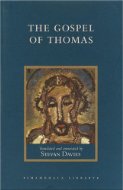
2. Jesus said: The seeker should not stop until he finds. When he does find, he will be disturbed. After having been disturbed, he will be astonished. Then he will reign over everything.[3]
[3] This Gospel's Christianity is not based on grace, on salvation given as a gift by God, but on active individual effort. Successful effort will be accompanied by strong emotions, for whatever is to be found will be disturbing and then astonishing. Thomas often uses the motif of"seek and find" (for example, in sayings 2, 38, 92, 94), but it is never made clear exactly what it is one is seeking. As did God's image in Genesis 1:28, human beings will come one day to reign over everything within the worlds that they find within themselves.
Stevan Davies & Andrew Harvey, Gospel of Thomas Annotated and Explained Reviews, Skylights Path (2006) p. 2-3
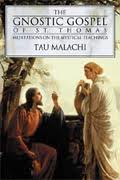
VERSE 2
Jesus said, “Let him who seeks continue seeking until he finds. When he finds he will become troubled. When he becomes troubled, he will be astonished, and he will rule over the all.”
You must seek in order to discover the Spirit and Truth and must continue seeking until you realize the Spirit indwelling you and know the Truth in your own experience. It is not enough that another person has discovered the Truth. Each individual must seek and strive to discover it and so engage in the Divine labor of salvation of one's soul, that is to say, the awakening and liberation of one's soul in conscious union with God.
This seeking is the sacred quest for the Holy Grail, which is not a physical relic or holy cup outside of oneself. Rather, the Holy Grail is a purified and consecrated heart, soul, mind, and life; it is oneself open and sensitive to the Christ-Spirit so that one lives the life of Christ. The Grail is the heart in which the Lord dwells, the person who has discovered an innate Spirit-connection and who lives within. It is the Christ-self, the Logos and Sophia of God, the inner or higher self that is one's secret center and holy root. Now these are just words, concepts in the mind. The nature of this sacred quest is such that you may have a word, name, or concept of what it is you are looking for, some idea of what it is, how and where it may be found. Yet, in fact, you do not know what it is you are looking for, how, where, or when it may be found. Whatever idea you may have of it is more likely a hindrance or obstruction to finding what you seek, misleading rather than helpful.
When seeking is based upon preconception, precondition, and expectations, upon who and what you think you are and who and what you believe reality or God to be, then seeking itself becomes an obstruction and what is sought cannot be discovered. If you go looking for something that does not exist or go seeking in a way or in a place it cannot be found, then, indeed, you will not find it. At the outset, you must understand that the very nature of God is different than anything you might conceive and that you yourself are not who or what you might think you are. Whatever your preconceptions, preconditions, or expectations, the reality-truth-continuum is yet more and cannot be contained or comprehended by the linear reasoning mind or dualistic consciousness. God will forever be a mystery, the nameless and unknown. God is completely other than what we might think. Discovering this is a troubling thing, shaking one to the core!
Tau Malachi, The Gnostic Gospel of St. Thomas
Llewellyn Publications (June 8, 2004) pp. 4-5
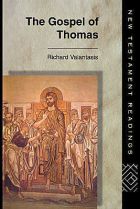
Saying 2
Jesus said, “Those who seek should not stop seeking until they find. When they find, they will be disturbed. When they are disturbed, they will marvel, and 'will rule over all.”
As indicated above, the goal in this new narrative world to which the readers were introduced in the very beginning of these sayings dos not involve simply the construction of a literary world. These sayings do not guide readers, as in a novel, to live in the fictional world for a time and then to leave it having experienced its narrative action. Rather, these sayings guide their readers into being different kinds of people, or, at least, they suggest to the readers that a different way of living exists and should be attempted. The alternative experience of self and world posited in these sayings indicates that these sayings aim toward the construction of an alternative way of understanding self and of living in the world; the sayings aim toward the construction of an alternative subjectivity. The construction of an alternative subjectivity constitutes a primary characteristic of ascetic literature where such a development of alternative subjectivities is a major goal of the ascetic practice (Valantasis 1995b). One goal of the process laid out in this saying, then, revolves about the construction of a new self through an ascetical activity and performances: through the performance of the sequence of seeking and finding, being disturbed, marveling, and ruling, a new person comes into being. That performance process creates a new person, one who begins with seeking, but immediately rules over all.
The second saying, then, presents the ascetic sequence for developing that new subjectivity: seeking, finding, being disturbed, marveling, and ruling. The first two elements in this sequence presents nothing unusual in formative Christianity: the seeking and finding construction recurs in a number of different collections of Jesus' sayings (The Synoptic Sayings Source Q 11.9—"Seek and you will find.”) The traditional early Christian formulation offers a simple guarantee that the one who seeks will find without any other explanation or delimitation of possibilities. The simple theme of seeking and finding also recurs in the Gospel of Thomas Sayings 92 and 94 (with a parallel in the Synoptic Sayings Source Q).
The last three, however, present startling information: finding leads to disturbance; disturbance leads to marveling which, in turn, leads to ruling. Clement of Alexandria cites in Greek a parallel to this ascetical sequence that he attributes to the Gospel of the Hebrews (see Quispel 1957; MacRae 1960: 64-69), and that formulation combines the elements from both the Greek and the Coptic version of the Gospel of Thomas ("He that seeks will not rest until he finds; and he that has found shall marvel; and he that has marveled shall reign, and he that has reigned shall rest.” (Cameroon 1982: 86). The expansion of the simple guarantee in these sayings into a fully developed procession of experiences (being disturbed, marveling, ruling) specifically advances the development of an alternative subjectivity. The person in the tradition formulation in the Synoptic Sayings Source Q need do nothing but seek in order to find; but the person in this expanded saying embraces a series of experiences that lead toward full empowerment. To rule over all expresses an increment of empowerment, of fulfillment and arrival at the apex of the experience. The formulation in this saying provides the basis for a significantly more complex process of formation in which, unfortunately, the precise referent of "being disturbed" and "marveling" cannot be established. The interlocking events, one step (seeking) linking to the next (finding) which in turn links with the next (being disturbed) establishes a precise sequence that abandons the earlier stages in favor of the unfolding later stages. This abandoning of the earlier in favor of the later stages reflects the gradual formation and reconstruction of subjectivity in the sayings. Even without understanding the precise referent to each of the stages, the ascetical process clearly articulates a different understanding of self and relationship to others. The culmination in rulings posits a dominant stance in relationship to other people and to the world. The new person, the one who, upon discovering the interpretation of the sayings will not experience death, emerges form the gradual and dramatic transformation that began with a search, mediated by finding, being disturbed, and marveling, and culminating in ruling. The search begins in deficiency; the end results in empowerment.
The progression of stages reverses the readers' expectations, and such reversals are frequent tactics in ascetical literature. The seekers in these sayings are people who will indeed find that for which they seek, but what they find will at once disturb them and make them marvel at their experience, and finally bestow upon them a superior authority and power over others. Those who seek must expect transformation and redefinition into a type of person and a kind of social relationship that does not fit the normal categories of human existence. Their experience moves them in an alternative direction. It takes a different type of person to be able to seek in this way, and the sayings intend quite specifically to create that alternative and different sort of person.
Although the quotation from the Gospel of the Hebrews combines all the elements of the sequence, the Greek and Coptic versions of Thomas differ in the sequence of experiences in this process, and that difference provides a locus for constructing new meanings. The goal in Greek version (and in the Gospel of the Hebrews) is "rest" and the Coptic version suppresses the rest and puts "ruling over all" as the final goal, a goal articulated as the penultimate stage in the Greek versions. Sometime in the chronological and theological interval between these versions, "ruling over all" supplanted "rest" as the final experience in the sequence, and with that supplanting, activity replaced passivity and dominion displaced repose. The Coptic version, moreover, added the marveling: the ruling subject is the marveling subject. This additional phrase draws attention to the self-experience and self-understanding of the ruler; the "marvel" predicates a subjective state comparable to the disturbance. The balance has shifted to a balance of activity and subjectivity states (finding/disturbing, marveling/ruling).
Richard Valantasis, The Gospel of Thomas
Routledge; 1 edition (June 27, 1997) pp. 55-7
P. Oxy 654.5-9 [Coptic Saying 2]
[Jesus says}, “Those who [seek] should not stop [seeking until] they find. When they find, [they will be disturbed. When they are] disturbed, they will rule, and [when they rule], they will [rest].”
This saying identifies the readers with the seekers in the interpretative process. It advances an unusual progression: seeking, finding, being disturbed, ruling, and resting. The saying links the stages in a process that evolves through various stages: seeking and finding, finding and being disturbed, being disturbed and ruling, ruling and resting. The process is interactive, overlapping, dynamic. Seeking and resting define the two extreme poles in what appears to be a logical sequence (to seek to rest makes sense on its own). The mediate processes, however, surprise with their details. Finding follows seeking but does not end the process; finding unsettles, rather than settling, the person seeking. That state of disturbance, moreover, does not debilitate the seeker, but empowers the seeker to rule. The progression toward understanding creates a complex process that inverts logical order so as to create a new understanding of formation. These seekers become empowered by their searching and finding, their disturbance and their ruling, and in that empowerment, they find rest, equilibrium, solitude.
The themes articulated here form the core of themes of the entire collection of sayings. The recurrence of rest, empowerment, disturbance, finding and seeking, punctuates the sayings throughout, so that such themes instruct us about the sort of goals and interests of the people who take these sayings seriously. These themes, in other words, provide the intellectual, spiritual, and emotional impetus to the engagement with the interpretation of these sayings.
Richard Valantasis, The Gospel of Thomas
Routledge; 1 edition (June 27, 1997) pp. 32-3
Seeking Is More Than Just Finding
by Abbot George Burke (Swami Nirmalananda Giri)
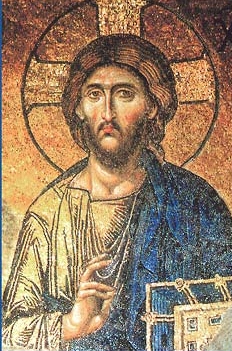
“Jesus said, Let him who seeks continue seeking until he finds. When he finds, he will become troubled. When he becomes troubled, he will be astonished, and he will rule over the All.” (2)
Let him who seeks continue seeking until he finds.
For some reason, in reading over the above aphorism there popped into my mind a memory of the old Dragnet television show. During one episode a woman whose son had become a dangerous criminal whined to Sergeant Friday: "God knows I tried.” With his usual dry aplomb Friday retorted: "Yeah, but how hard did you try," and the boom-boom-boom-boom Dragnet theme blared away for a commercial break. That actually applies to these words of Jesus. It is not mere seeking that ends in finding, but effective and prolonged seeking. Jesus is being a bit like Humty Dumpty inAlice in Wonderland when he told Alice: "Begin at the beginning, and when you come to the end, stop.”Just keep going until you reach the goal. Very simple and often very hard to do.
Yet we must grasp this necessary fact of spiritual life: "He that endureth to the end shall be saved" (Matthew 10:22). Sri Ramakrishna told the parable of a man at the edge of a forest who was told by a monk to "Go forward.” So he did. And although every so often he found increasingly valuable things, he recalled the words "Go forward" and kept going on until he discovered abundant wealth. We, too, have to keep going forward, further and further, "from glory to glory" (II Corinthians 3:18), until we reach the Supreme Goal "for That alone is what we should be seeking. We must never stop the search. It has been said that the desire for God is the way to God. Those who slacken or stop have slacked or stopped in their desire for God. Where, then, is the possibility of finding?
When he finds, he will become troubled.
Johnson has "bewildered" rather than "troubled," and Patterson and Maeyer have "disturbed.” But others concur with Lambdin in rendering it "troubled.”
We read in the book of Acts that Saint Paul and his companions were once described by their religious enemies as: "These that have turned the world upside down" (Acts 17:26). We have lived for entire creation cycles in complete delusion. Only now, after more years than human mathematicians can calculate, has a glimmer of reality entered into our purview. And the result? It has seemed to disrupt "if not actually shatter" our life! Look at how people agonize over a very little spiritual insight. In the West it is to the point of absurdity and often insanity. I am not speaking of theory and speculation westerners love such mind-games. I am speaking of the sledgehammer impact a few grains of practical truth "for that is what reality is"has on everyone's life. It is easy to forget, so maybe you may not recall what it was like the first time reality"struck"In your life. But if you will sit and look backwards you will see that every advance in true knowledge has necessitated a real struggle and even pain in bringing your life into conformity to it. If not, it still lies ahead for you. Get ready.
Spiritual history is filled with accounts of people who, when given a vision of the truth of things were devastated and disoriented. For never again could they go back to where they were the moment before the lightning struck. Many have foolishly wished it had not taken place. When Sri Ramakrishna opened the consciousness of Naren (the future Swami Vivekananda), he reaction was to weep bitterly and ask: "What have you done to me?”Such is the power of ignorance over our hearts. Like long-caged birds we fear freedom. Many people become upset and even angry when something occurs to open their understanding and make them see more clearly than they did before. What should be a cause for rejoicing becomes a matter of regret and complaint"such is the extent of our spiritual insanity.
It takes great courage to face truth and rise to the level it requires. Before reaching the human form, consciousness evolves blindly, automatically. But humans are on a different plateau, and although they may be forcibly faced with higher reality, they have to agree to it and move up on their own volition. In time they must come to consciously and willfully evolve themselves through the cultivation of inner life. They must become yogis (I mean this in the broadest sense, for every valid religion has produced ways to induce right behavior, forms of worship and prayer, and methods to cultivate higher spiritual consciousness.) Without yoga, spiritual life can be nothing but haphazard, however sincere and devoted the seeker may be.
Even men and women of great wisdom have trembled and shrank back at the dawning of higher vision, for such vision means a death of much that has heretofore flourished in the twilight world of half-knowledge"much that we have fostered and increased through ages, identifying with it and dominated by it. It is excruciatingly painful to acknowledge that our wisdom has been folly, our living has been death, and our faith has really been only superstition.
When he becomes troubled, he will be astonished.
But when the leap is made, when the truth has been not only seen but assimilated into our consciousness, great wonder will arise within us. Lambdin uses the term"Astonished," but others prefer," marvel," "Amazed," and"Wonder.”
It is said in India that Shiva, the Divine Yogi, usually sits in profound samadhi in total communion with His Self. But occasionally He emerges from that state and dances in bliss, exclaiming: "O! Who I am! Who I am!"To enter into hitherto unknown and undreamed-of dimensions of consciousness is a delight and blessedness unthought of by those yet to open those doors of the spirit. Just as the hem of Jesus' garment flowed healing virtue (Matthew 9:20; 14:36), so even the borders of the inner kingdom flow with a glory impossible to describe"but very easy to experience. I well remember the joyful awe that I lived and breathed daily when, after finding the path of yoga I began moving toward the dawning Light. It was something I could never have imagined possible, something undreamed of by the murky religion in which I had been brought up. At last I had found the real gospel (good news) of"Christ in you the hope of glory" (Colossians 1:27). Light had come to me from the East, just as it had to Jesus, and earlier to the Essenes through Moses and Aaron.
Yes, if we can hold firm and bravely move on into the new territories opened by the inner sight, we will be astonished from day to day. Expanding awareness terrifies and panics the ego, but it rejoices the spirit. Many turn back to the ego's realm, but others hasten on into the world of freedom in spirit. Perseverance becomes no longer a trial, but a happy anticipation.”For I reckon that the sufferings of this present time are not worthy to be compared with the glory which shall be revealed in us" (Romans 8:18).
However, the order of things is never changed: first comes the troubling and then the wonder. We cannot have the second without the first.
And he will rule over the All.
Jesus is not speaking to us of some kind of abstract intellectual delight or marvel, but of something eminently practical.”Then shall the King say unto them on his right hand, Come, ye blessed of my Father, inherit the kingdom prepared for you from the foundation of the world" (Matthew 25:34). The kingdom of God, the kingdom of heaven, is the limitless expanse of that infinite Consciousness that is God. Those who persevere to the end shall enter into the essential life of God, for"The saints of the most High shall take the kingdom, and possess the kingdom for ever, even for ever and ever" (Daniel 7:18).”And the kingdom and dominion, and the greatness of the kingdom under the whole heaven, shall be given to the people of the saints of the most High, whose kingdom is an everlasting kingdom, and all dominions shall serve and obey him" (Daniel 7:27).
Jesus spoke of this attainment when He told Saint John: "To him that overcometh will I grant to sit with me in my throne, even as I also overcame, and am set down with my Father in his throne" (Revelation 3:21). The identical status which Jesus attained shall be attained by all who seek, find, become troubled, and become astonished. They, too, shall rule over all.
"Let this mind be in you, which was also in Christ Jesus: who, being in the form of God, thought it not robbery to be equal with God.... Wherefore God also hath highly exalted him, and given him a name which is above every name: That at the name of Jesus every knee should bow, of things in heaven, and things in earth, and things under the earth; and that every tongue should confess that Jesus Christ is Lord, to the glory of God the Father" (Philippians 2:5, 6, 9-11). That this shall be said of each one of us is indicated by the words of Jesus: "Verily, verily, I say unto you, He that believeth on me, the works that I do shall he do also; and greater works than these shall he do" (John 14:12). The Kingdom shall be our kingdom, the Power shall be our power, and the Glory shall be our glory. Amen.
Abbot George Burke (Swami Nirmalananda Giri)
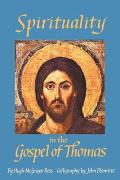
A Direct Way Forward
The Gospel of Thomas offers you a direct link between one of the Great Souls of mankind and the most essential attribute in you, the very essence of humanity in you.
The link is direct. It is unmediated, not influenced by or tampered with by anyone. It has a purity, it is immediate.
It comes from, and goes to, that spiritual place within you that lies beyond or by-passes the influence and interference of the mind. There is no need to get involved with complex philosophies or speculations. The mind and the intellect can rest in peace.
It is something that is offered, it is not imposed. To attain it you only need to seek it. Assurance is given that it shall be found. This is because it is calling upon, and responding to, a quality that is inherently within you.
Part of the work of a great Teacher such as Jesus is to awaken the quality, the capability within you, to respond to what is being offered. This is not that you are being taught something new, for it is a capability that has always been there, merely lying dormant. It is inherently latent within you.
When it is aroused and satisfied a whole cornucopia of blessings follow. Your life becomes enriched by happiness, by recognition of beauty, by certainty and absence of doubt. Perhaps most of all a way is provided to surmount and overcome the pains and distress of suffering, whether this arises from disorders of the body or of mind.
You will find there are several sayings in which the"disciples'—who probably were those we call the apostles who walked about with Jesus— ask questions. In each case these arose from the baggage of old ideas they carried about with them. In 'Thomas' however Jesus never answers negatively, never chides nor rebukes. His answers are always positive, to lead them on to some better awareness, to replace the old idea with something new. It is inevitable that you also will have doubts or uncertainties arising from the baggage you bring. Rather than these being blown away, leaving a painful vacuum, you will find some positive new awareness such that old concepts merely fade away.
Hugh McGregor Ross, Spirituality in the Gospel of Thomas
Bright Pen (August 17, 2010) pp. 16-7

Seek Until You Find
by Andrew Cohen
"I became a spiritual teacher twenty-four years ago, once I found what I was looking for. Up until that point I had been a deadly serious seeker—an ardent meditator as well as a dedicated student who sought out companions and teachers who shared my passion for Spirit. Typical of my generation, I looked to the East to find illumination rather than to the West. After two and a half years in India, I met my last teacher and he liberated my soul when he uttered ten simple words: "You don't have to make any effort to be free.”Upon hearing this, I made the transition from seeker to finder.
For any one of us who is moved by spiritual inspiration, it is important that we seek wholeheartedly until we find. And once we begin to seek, we must not stop until we are convinced, at the deepest level of our being, of the mystical reality that God, or Spirit, is our own true Self. For some, that might occur in an explosive revelation; for others, in a very quiet moment. However it happens, we will know. And it is at that moment that we have to be willing to take the most important step on the path to liberation: to give up the seeking process forever. There will always be more for us to experience, to understand, and to realize, but once we are convinced of the reality of Spirit, at a soul level, we are no longer seekers. And therefore, we have to take responsibility for what it means to be finders.
As finders, we don't need any more evidence. To use theological language, we no longer have the right to demand that God prove him- or herself to us, over and over again. It could even be considered unseemly, greedy, and, in some cases, immoral for individuals who have been blessed with a direct glimpse of the miraculous to continue to insist on more experiential proof. As I see it, the purpose of mystical experience is to convince us, at a soul level, that our true nature is Spirit—to convince us so deeply that we are liberated from existential doubt. Why? So we will finally be available to participate, consciously and wholeheartedly, in the greatest gift we've been given ... which is the life we are already living right now.”
www.enlightennext.org/magazine/j47/seek-until-you-find.asp

"Great Goddess is both wholly transcendent and fully immanent: beyond space and time, she is yet embodied within all existent beings; without form as pure, infinite consciousness (cit) … She is the universal, cosmic energy known as Sakti, and the psychophysical, guiding force designated as the Kundalini (Serpent Power) resident within each individual. She is eternal, without origin or birth, yet she is born in this world in age after age, to support those who seek her assistance. Precisely to provide comfort and guidance to her devotees, she presents herself in the Devi Gita to reveal the truths leading both to worldly happiness and to the supreme spiritual goals: dwelling in her Jeweled Island and mergence into her own perfect being.” (Brown 1998, 2)
To my flower children
You are angry with life
Like small children
Whose Mother is lost in Darkness.
Your sulk expressing despair
At the fruitless end of your journey.
You wear Ugliness to discover Beauty.
You name everything false in the name of Truth.
You drain out emotions to fill the cup of Love.
My sweet children, my darling
How can you get peace by waging war
With yourself, with your being, with joy itself.
Enough are your efforts of renunciation.
The artificial mask of consolation.
Now rest in the petals of the lotus flower
In the lap of your gracious Mother.
I will adorn your life with beautiful blossoms
And fill your moments with joyful fragrance.
I will anoint your head with Divine Love
For I cannot bear your torture anymore.
Let me engulf you in the ocean of joy,
So you lose your being in the Greater one
Who is smiling in your calyx of self
Secretly hidden to tease you all the while.
Be aware and you will find Him
Vibrating your every fibre with blissful joy
Covering the whole Universe with light.
THE MOTHER: Messiah-Paraclete-Ruh-Devi
“In our searching, we are asking for the actual experience. In all the scriptures it has been said that we will be born again. We are looking for a second birth which is within us. All the religions talk about it, We have to stabilize ourselves to get the experience and it will work out. We search with our minds and rationality for the truth. This mind is not connected to the whole. We are not aware of the whole, we have so many problems.”
THE MOTHER: Messiah-Paraclete-Ruh-Devi
Seeking and Rationality, Caxton Hall, London, UK—May 24, 1979

"As the spirit is in the Gospel proper, so the Spirit-Paraclete is a benefit that Jesus will broker to believers. But as with the other benefits that Jesus provides, the source of the Paraclete is with God. The Father sends the Paraclete via Jesus. Ultimately, the Paraclete is sent to perpetuate the availability of access to God's patronage... As the true Spirit, the Paraclete stands apart from the false spirits of the world. Consequently, to call the Spirit-Paraclete the truth is to make a competitive claim against those opponents. While the Spirit-Paraclete is the true broker, the brokers they rely on are impostors.” (Brown 2004, 233)
“Now we all have realized by this time, that within us lies the peace, the beauty, the glory of our being. There's an ocean of all that. We cannot seek it outside, we have to go within, what they call in the meditative state, you seek it, you enjoy it. Like when you are thirsty, you go to a river or you go to a ocean, and try to quench your thirst. But even the ocean cannot give you sweet water.
So how can anything that is spread outside give you that deep thing that is within you? You are trying to find it outside, where it does not lie. It is within us, absolutely with in us. It is so simple because it is your own; it is within your reach, just there. What ever you have been doing, going out to find the joy, the so called joy, the so called happiness, the so called glory of worldly powers and worldly possessions, you have to reverse it back the whole thing. You have to project within yourself. It was not wrong that you went out, it was not correct that you went out, shouldn't feel sorry for what you have done so far. It was not the correct way to get to the real joy of life, the real glory of your being.
It has worked in so many people, that you have entered into that subtler understanding. Some people are only at a mental level maybe, doesn't matter. Maybe, some are only at a physical level that they can feel it, doesn't matter. But, you are on the correct lines, you are moving correctly.
Try to meditate, meditate more so that you reach your inner being. And this inner being, is the vast ocean of bliss, which exists in every one of us. Is that vast glorifying flood of light that floods everybody's inner beauty. So to approach it, you have to go within yourself by denying things, which are against it, against your movement. Sometimes the wind can be very, very strong for you to misunderstand that the glory of God is within. The turn back: every moment remember that your movement has to be inward. When you move inward you forget the ideas of your outer glories...
It's an individual journey towards God when you meditate, and when you reach there then you become collective. Before that, it's an absolute individual journey within, absolutely individual journey. You should be able to see this. You are in this journey nobody is your relation, nobody is your brother, nobody is your friend, you're absolutely alone, absolutely alone. You have to move alone within yourself. Don't hate anyone, don't be responsible, but in meditative mood you're alone. No one exists there, you alone, and once you enter into that ocean then the whole world becomes your family. The whole world is your own manifestation. All the children become your children and you treat all people with equal understanding. The whole expansion takes place when you enter inside your Spirit and see, starting through the eyes of the Spirit. Such calm, such peace, such bliss exists within you. You have to be ready for that journey.”
THE MOTHER: Messiah-Paraclete-Ruh-Devi
The Individual journey towards Collectivity and Bliss
Sydney Australia—March 14, 1983

"Salvation is primarily an eschatological gift. In Jesus' answer to the rich young ruler about eternal life, salvation is synonymous with eternal life and entrance into the Kingdom of God in the Age to Come (Mk. 10:17-30). This eschatological salvation is elsewhere described merely as a saving of one's (true) life in contrast with losing one's physical life (Mk. 8:35; Mt. 10:39; Lk. 17:33). This eschatological salvation can be described simply as entrance into (eternal) life (Mk. 9:43; Mt. 25:46) or into the joy of the Lord (Mt. 25:21, 23).” (Ladd 1993, 72)
“So in this country the search 'within' actually started long- long time back. But in the West it was never done that way. They had people like Christ who never needed any search, like me, I don't have to go searching something.
He brought all the Truths of Life to you to give it to you but you made a complete mess out of it. Here also we had great saints and great incarnations, but the saints are the people who told that you must seek, you must seek, Not that Christ did not say you do not seek, but nobody is bothered on that point, whether we should seek or not.
But in the east people know that we have to seek, we have to get to God. But to get to God for what? Just that we should be benefited in our material life? So this goal is of no use.”
THE MOTHER: Messiah-Paraclete-Ruh
“These are the signs of the advent of the Golden age of Truth (Satya Yoga). Let us forget whatever hardships we have suffered in our search in the past. It does not matter if some could not find it before this. You have to open your mind and understand that though the discovery is unprecedented, it does not make any seeker or predecessor small. If some experiments are made, it does not matter if, ultimately, we have found out the way. It is a collective achievement. Perhaps in the chaos of Kali Yoga it was to happen and many of us, who have been earnestly searching in many lives, are reborn to have their promises fulfilled by the Divine. Maybe we were our own predecessors.
On the Tree of Life there might have been very few flowers but now the blossom time has come. Their fragrance of longing has collectively materialised the manifestation of Sahaja Yoga. Many are going to jump into the realm of thoughtless awareness where you get introduced to yourself and start identifying with your universal nature. Those who deserve will get the throne of their inner being which rules the skies of peace, and the oceans of divine love and supreme knowledge within, which is limitless (Anant).”
THE MOTHER: Messiah-Paraclete-Ruh-Devi

"Where does this leave the raising of the dead and other miraculous deeds? In the end, one can only say that the text does not make it clear whether these are to be performed through the Messiah or not. This is not a distinction the author was concerned to make: in common with several other authors of intertestamental texts his interest lay not with the person of the Messiah but with what God was going to do in the Messianic age. The Messiah will come and the great age of salvation will dawn (for the pious); that is the author's message; demarcating a precise division of labour is not his concern.” (Eve 2002, 196)
“So I said at Sahasrara I had to be Mahamaya. I had to be Mahamaya. I had to be something that people cannot recognise me easily. But deities? No. This Mahamaya had to come on this earth, not the Adi Shakti in her purest form, it's too much. So she was covered with this Mahamaya. Now you see, in nineteen years what we have achieved. So many yogis are sitting in front of me. The difference between a saint and a yogi is that the saint himself is righteous, himself is holy, but he doesn't know much about the Kundalini. But the yogi knows about the Kundalini. The difference between a yogi and a Sahaja Yogi, Sahaja Yogi is, that a Sahaja Yogi has powers. a Sahaja Yogini has powers to give realisation to others. A yogi can cleanse himself but he cannot cleanse others, while a Sahaja Yogi can cleanse others and cleanse himself.
So this is the most superior state which you achieved through your great punyas I should say. So many of you have been searching the truth in previous lives, and now here you are to achieve what you have been searching for. All that has happened now, so beautifully. You are not even aware what has happened to you automatically. Spontaneously you have got the powers within your central nervous system in a split of a second. Your attention has been fixed.”
THE MOTHER: Messiah-Paraclete-Ruh-Devi
How It Was Decided, Fregene, Italy—May 8, 1988
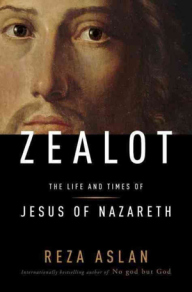
“When I was fifteen years old, I found Jesus.
I spent the summer of my sophomore year at an evangelical youth camp in Northern California, a place of timbered fields and boundless blue skies, where, given enough time and stillness and soft-spoken encouragement, one could not help but hear the voice of God. Amidst the man-made lakes and majestic pines my friends and I sang songs, played games, and swapped secrets, rollicking in our freedom from the pressures of home and school. In the evenings, we gathered in a fire-lit assembly hall at the center of the camp. It was there that I heard a remarkable story that would change my life forever.
Two thousand years ago, I was told, in an ancient land called Galilee, the God of heaven and earth was born in the form of a helpless child. The child grew into a blameless man. The man became the Christ, the savior of humanity. Through his words and miraculous deeds, he challenged the Jews who thought they were the chosen of God, and in return the Jews had him nailed to a cross. Though he could have saved himself from that gruesome death, he freely chose to die. Indeed, his death was the point of it all, for his sacrifice freed us all from the burden of our sins. But the story did not end there, because three days later, he rose again, exalted and divine, so that now, all who believe in him and accept him into their hearts will also never die, but have eternal life.
Two decades of rigorous academic research into the origins of Christianity has made me a more genuinely committed disciple of Jesus of Nazareth than I ever was of Jesus Christ.
For a kid raised in a motley family of lukewarm Muslims and exuberant atheists, this was truly the greatest story ever told. Never before had I felt so intimately the pull of God. In Iran, the place of my birth, I was Muslim in much the way I was Persian. My religion and my ethnicity were mutual and linked. Like most people born into a religious tradition, my faith was as familiar to me as my skin, and just as disregardable. After the Iranian revolution forced my family to flee our home, religion in general, and Islam in particular, became taboo in our household. Islam was shorthand for everything we had lost to the mullahs who now ruled Iran. My mother still prayed when no one was looking, and you could still find a stray Quran or two hidden in a closet or a drawer somewhere. But, for the most part, our lives were scrubbed of all trace of God.
That was just fine with me. After all, in the America of the 1980s, being Muslim was like being a spaceman. My faith was a bruise, the most obvious symbol of my otherness; it needed to be concealed.
Jesus, on the other hand, was America. He was the central figure in America's national drama. Accepting him into my heart was as close as I could get to feeling truly American. I do not mean to say that mine was a conversion of convenience. On the contrary, I burned with absolute devotion to my newfound faith. I was presented with a Jesus who was less"Lord and Savior"than he was a best friend, someone with whom I could have a deep and personal relationship. As a teenager trying to make sense of an indeterminate world I had only just become aware of, this was an invitation I could not refuse.
The moment I returned home from camp, I began eagerly to share the good news of Jesus Christ with my friends and family, my neighbors and classmates, with people I'd just met and with strangers on the street: those who heard it gladly, and those who threw it back in my face. Yet something unexpected happened in my quest to save the souls of the world. The more I probed the Bible to arm myself against the doubts of unbelievers, the more distance I discovered between the Jesus of the gospels and the Jesus of history " between Jesus the Christ and Jesus of Nazareth. In college, where I began my formal study of the history of religions, that initial discomfort soon ballooned into full-blown doubts of my own.
The bedrock of evangelical Christianity, at least as it was taught to me, is the unconditional belief that every word of the Bible is God-breathed and true, literal and inerrant. The sudden realization that this belief is patently and irrefutably false, that the Bible is replete with the most blatant and obvious errors and contradictions—just as one would expect from a document written by hundreds of different hands across thousands of years—left me confused and spiritual unmoored. And so, like many people in my situation, I angrily discarded my faith as if it were a costly forgery I had been duped into buying. I began to rethink the faith and culture of my forefathers, finding in them as an adult a deeper, more intimate familiarity than I ever had as a child, the kind that comes from reconnecting with an old friend after many years apart.
Meanwhile, I continued my academic work in religious studies, delving back into the Bible not as an unquestioning believer but as an inquisitive scholar. No longer chained to the assumption that the stories I read were literally true, I became aware of a more meaningful truth in the text, a truth intentionally detached from the exigencies of history. Ironically, the more I learned about the life of the historical Jesus, the turbulent world in which he lived, and the brutality of the Roman occupation that he defied, the more I was drawn to him. Indeed, the Jewish peasant and revolutionary who challenged the rule of the most powerful empire the world had ever known and lost became so much more real to me than the detached, unearthly being I had been introduced to in church.
Today, I can confidently say that two decades of rigorous academic research into the origins of Christianity has made me a more genuinely committed disciple of Jesus of Nazareth than I ever was of Jesus Christ. My hope with this book is to spread the good news of the Jesus of history with the same fervor that I once applied to spreading the story of the Christ.”
Reza Aslan Zealot: The Life and Times of Jesus of Nazareth
Random House (July 16, 2013) pp. xvii-xxi
What does the Gospel of Thomas tell us about Jesus?
"This gospel understands Jesus to be a charismatic figure. By this I mean, Jesus continues to live in their community even after he has died. His spirit continues to speak to this community of faithful, and they continue to record his teachings. They do not appear to have made any distinction between the"historical"Jesus before death and the"spirit"Jesus after death, at least in terms of authority or historicity of his words. The Jesus that emerges in the Gospel of Thomas is not entirely foreign to the New Testament portrayals, particularly as we see him emerge in the Gospel of John - but also, as we see him in Mark, teaching publicly to the crowds and privately his mysteries to a few close followers. His message is either similar to the New Testament Jesus, or contiguous with him. He teaches against carnality and succumbing to bodily desire. He's an advocate for celibacy. He preaches that the Kingdom of God is here, that people must make a choice whether to enter it or not, that this choice requires an exclusive commitment to him and God, that the going is tough and few will be able to make it. He demands a lifestyle of righteous living, promises rewards including personal transformation and revelation.”
About Professor DeConick
April D. DeConick is the Isla Carroll and Percy E. Turner Professor of Biblical Studies. She is a historian of early Jewish and Christian thought. What fascinates her is mapping the many ways that the Jesus tradition emerges across the literature, traditions that have left behind echoes of bitter controversies and competing memories. She has a deep love for exploring the various expressions of ante-Nicene mysticism, including the spirituality of classic Gnostic thinkers. Her work has been called"revisionist," challenging us to seek answers beyond the conventional.
http://forbiddengospels.blogspot.com/p/gospel-of-thomas.html
(Retrieved January 14, 2012)
THE APOCALYPSE OF THE SPIRIT-PARACLETE
The fulfillment of the promised divine eschatological instruction
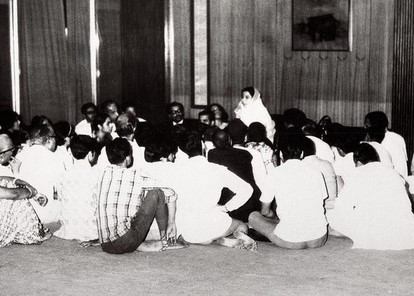
“The Paraclete will come (15:26; 16:7, 8, 13) as Jesus has come into the world (5:43; 16:28; 18:37)... The Paraclete will take the things of Christ (the things that are mine, ek tou emou) and declare them (16:14-15). Bishop Fison describes the humility of the Spirit, 'The true Holy Spirit of God does not advertise Herself: She effaces Herself and advertises Jesus.' ...
It is by the outgoing activity of the Spirit that the divine life communicates itself in and to the creation. The Spirit is God-in-relations. The Paraclete is the divine self-expression which will be and abide with you, and be in you (14:16-17). The Spirit's work is described in terms of utterance: teach you, didasko (14:26), remind you, hypomimnesko (14:26), testify, martyro (15:26), prove wrong, elencho (16:8), guide into truth, hodego (16:13), speak, laleo (16:13, twice), declare, anangello (16:13, 14, 15). The johannine terms describe verbal actions which intend a response in others who will receive (lambano), see (theoreo), or know (ginosko) the Spirit. Such speech-terms link the Spirit with the divine Word. The Spirit's initiatives imply God's personal engagement with humanity. The Spirit comes to be with others; the teaching Spirit implies a community of learners; forgetful persons need a prompter to remind them; one testifies expecting heed to be paid; one speaks and declares in order to be heard. The articulate Spirit is the correlative of the listening, Spirit-informed community.
The final Paraclete passage closes with a threefold repetition of the verb she will declare (anangello), 16:13-15. The Spirit will declare the things that are to come (v.13), and she will declare what is Christ's (vv. 14, 15). The things of Christ are a message that must be heralded...
The intention of the Spirit of truth is the restoration of an alienated, deceived humanity... The teaching role of the Paraclete tends to be remembered as a major emphasis of the Farewell Discourses, yet only 14:26 says She will teach you all things. (Teaching is, however, implied when 16:13-15 says that the Spirit will guide you into all truth, and will speak and declare.) Franz Mussner remarks that the word used in 14:26, didaskein, "means literally 'teach, instruct,' but in John it nearly always means to reveal.” (Stevick 2011, 292-7)
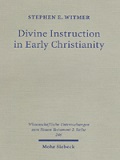
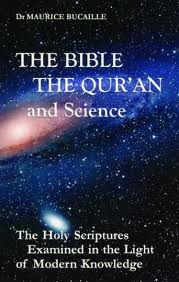
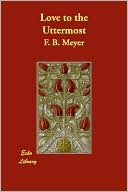
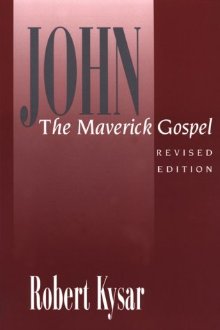
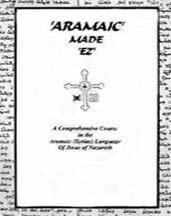
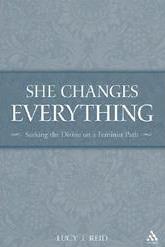
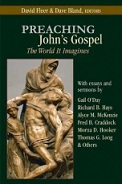
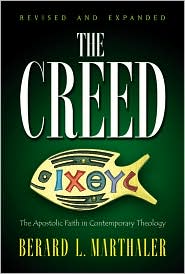
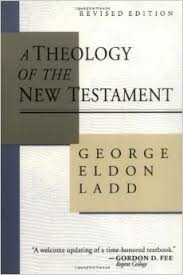
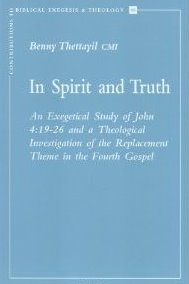

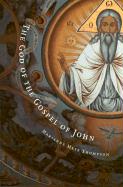
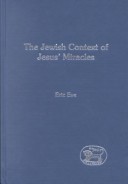
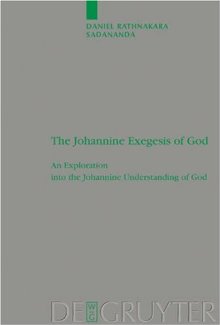

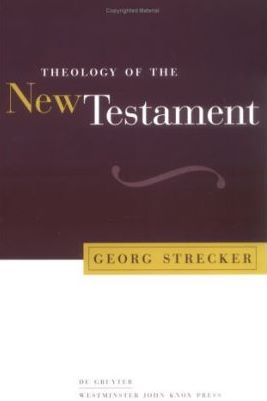

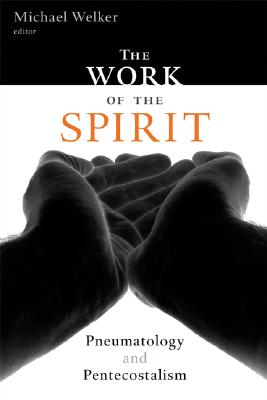
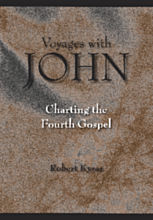
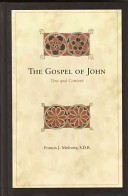
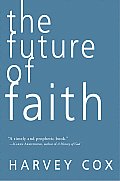
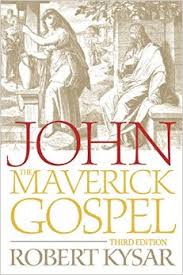
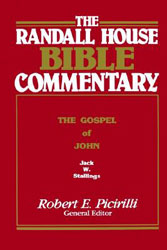

Stephen E. Witmer, Divine instruction in Early Christianity
“Jesus therefore predicts that God will later send a human being to Earth to take up the role defined by John .i.e. to be a prophet who hears God's words and repeats his message to man.”
M. Bucaille, The Bible, the Qur'n, and Science
“And when Jesus foreannounced another Comforter, He must have intended a Person as distinct and helpful as He had been.”
F. B. Meyer, Love to the Utmost
“The Paraclete has a twofold function: to communicate Christ to believers and, to put the world on trial.”
Robert Kysar, John The Meverick Gospel
“But She—the Spirit, the Paraclete...—will teach you everything.”
Danny Mahar, Aramaic Made EZ)
“Grammatical nonsense but evidence of the theological desire to defeminize the Divine.”
Lucy Reid, She Changes Everything
“The functions of the Paraclete spelled out in verses 13-15... are all acts of open and bold speaking in the highest degree.”
David Fleer, Preaching John's Gospel
“The reaction of the world to the Paraclete will be much the same as the world's reaction was to Jesus.”
Berard L. Marthaler, The Creed: The Apostolic Faith in Contemporary Theology
Bultmann calls the “coming of the Redeemer an 'eschatological event,' 'the turning-point of the ages.”
G. Ladd, A Theology of the New Testament
“The Paraclete equated with the Holy Spirit, is the only mediator of the word of the exalted Christ.”
Benny Thettayil, In Spirit and Truth
“The divine Paraclete, and no lessor agency, must show the world how wrong it was about him who was in the right.”
Daniel B. Stevick , Jesus and His Own: A Commentary on John 13-17
Stephen Smalley asserts that “The Spirit-Paraclete ... in John's Gospel is understood as personal, indeed, as a person.”
Marianne Thompson, The God of the Gospel of John
“The Messiah will come and the great age of salvation will dawn (for the pious).”
Eric Eve, The Jewish context of Jesus' Miracles
“The remembrance is to relive and re-enact the Christ event, to bring about new eschatological decision in time and space.”
Daniel Rathnakara Sadananda, The Johannine Exegesis of God
“The Spirit acts in such an international situation as the revealer of 'judgment' on the powers that rule the world.”
Michael Welker, God the Spirit
The Paraclete's “Appearance means that sin, righteousness, and judgment will be revealed.”
Georg Strecker, Theology of the New Testament
“While the Spirit-Paraclete is the true broker, the brokers they rely on are impostors.”
T. G. Brown, Spirit in the writings of John
“The pneumatological activity ... of the Paraclete ... may most helpfully be considered in terms of the salvific working of the hidden Spirit.”
Michael Welker, The work of the Spirit
“The pneuma is the peculiar power by which the word becomes the words of eternal life.”
Robert Kysar, Voyages with John
“The gift of peace, therefore, is intimately associated with the gift of the Spirit-Paraclete.”
Francis J. Moloney, The Gospel of John
“This utopian hope, even when modestly expressed, links Jesus and the prophets to a much wider history of human longing.”
Harvey Cox, The Future of Faith
“Because of the presence of the Paraclete in the life of the believer, the blessings of the end-times—the eschaton—are already present.”
Robert Kysar, John
“They are going, by the Holy Spirit's power, to be part of the greatest miracle of all, bringing men to salvation.”
R. Picirilli, The Randall House Bible Commentary
“The Kingdom of God stands as a comprehensive term for all that the messianic salvation included... is something to be sought here and now (Mt. 6:33) and to be received as children receive a gift (Mk. 10:15 = Lk. 18:16-17).”
G. Ladd, A Theology of the New Testament
“But today is the day I declare that I am the one who has to save the humanity. I declare I am the one who is Adishakti, who is the Mother of all the Mothers, who is the Primordial Mother, the Shakti, the desire of God, who has incarnated on this Earth to give its meaning to itself; to this creation, to human beings and I am sure through My Love and patience and My powers I am going to achieve it.
I was the one who was born again and again. But now in my complete form and complete powers I have come on this Earth not only for salvation of human beings, not only for their emancipation, but for granting them the Kingdom of Heaven, the joy, the bliss that your Father wants to bestow upon you.”
THE MOTHER: Messiah-Paraclete-Ruh
London, UK—December 2, 1979
“I am the one about which Christ has talked... I am the Holy Spirit who has incarnated on this Earth for your realization.”
THE MOTHER: Messiah-Paraclete-Ruh
New York, USA—September 30, 1981
“Tell all the nations and tell all the people all over the Great Message that the Time of Resurrection is here. Now, at this time, and that you are capable of doing it.”
THE MOTHER: Messiah-Paraclete-Ruh
Cowley Manor Seminar, UK—July 31, 1982
Guest: “Hello Mother.”
Shri Mataji: “Yes.”
Guest: “I wanted to know, is the Cool Breeze (Pneuma) that you have spoken about, you feel on the hands the Cool Wind of the Holy Spirit, as spoken about in the Bible?”
Shri Mataji: “Yes. Yes, yes, same thing, same thing. You have done the good job now, I must say.”
Interviewer: “Is it the Holy Spirit?”
Shri Mataji: “Yes, of course, is the Holy Spirit.”
Guest: “Aha... I am feeling it now on my hand through the [not clear]”
Shri Mataji: “It’s good.”
Interviewer: “Did you want to say anything more than that?”
Guest: “No, I just... That’s all I wanted to know because I...”
Shri Mataji: “Because you are thoughtless now. Enjoy yourself.”
Guest: “Thank you.”
THE MOTHER: Messiah-Paraclete-Ruh-Devi
Talkback Radio 2UE, Sydney, Australia—March 31, 1981
Second Guest: “I just want to ask Mother about a quotation from the Bible.”
Interviewer: “Yes, what’s that?”
Guest: “It says, ‘But the comfort of the Holy Spirit that the Father will send in My name would teach you all things.’ I would like to ask Her about that.”
Interviewer: “Could you just repeat the quotation again?”
Guest: “But the Comforter, the Holy Spirit, whom the Father will send in My name, will teach you all things.”
Interviewer: “And that’s from where?”
Guest: “John chapter 14, verse 26.”
Shri Mataji: “I think you should take your realization and then you will know the answer to it. Because, logically if it points out to one person, then you have to reach the conclusion, isn’t it? That’s a logical way of looking at things. But I am not going to say anything or claim anything. It is better you people find out yourself.”
Interviewer: “Does that answer your question?”
Guest: “Is the, is the Comforter on the Earth at the present time? Has the Comforter incarnated? Mataji should be able to tell us this because She said that through these vibrations on Her hands, She ...”
Shri Mataji: “Yes, She is very much here and She’s talking to you now. Can you believe that?”
Guest: “Well, I feel something cool [Pneuma/Prana/Chi] on my hand. Is that some indication of the ...?”
Shri Mataji: “Yes, very much so. So that’s the proof of the thing. You’ve already started feeling it in your hands.”
Guest: “Can I?”
Shri Mataji: “Ask the question, ‘Mother, are you the Comforter?’”
Guest: “Mother, are you the Comforter?”
Shri Mataji: “Ask it thrice.”
Guest: “Mother, are you the Comforter?”
Shri Mataji: “Again.”
Guest: “Mother, are you the Comforter?”
Shri Mataji: “Now, what do you get?”
Guest: “Oh, I feel this kind of cool tingling [Pneuma/Prana/Chi] passing all through my body.”
Shri Mataji: “That’s the answer now.”
THE MOTHER: Messiah-Paraclete-Ruh-Devi
Talkback Radio 2UE, Sydney, Australia—March 31, 1981

“The Paraclete and the disciples (vv. 25-26): The theme of departure (cf. vv. 1-6; vv. 18-24) returns. There are two "times" in the experience of the disciples: the now as Jesus speaks to them (v. 25) and the future time when the Paraclete, the Holy Spirit, sent by the Father in the name of Jesus, will be with them (v. 26). The Paraclete will replace Jesus' physical presence, teaching them all things and recalling for them everything he has said (v. 26). As Jesus is the Sent One of the Father (cf. 4:34; 5:23; 24, 30, 37; 6:38-40; 7:16; 8:16, 18, 26; 12:44-49), so is the Paraclete sent by the Father. The mission and purpose of the former Paraclete, Jesus (cf. 14:13-14), who speaks and teaches "his own" will continue into the mission and purpose of the "other Paraclete" (cf. v. 16) who teaches and brings back the memory of all that Jesus has said. The time of Jesus is intimately linked with the time after Jesus, and the accepted meaning of a departure has been undermined. The inability of the disciples to understand the words and deeds of Jesus will be overcome as they "remember" what he had said (cf. 2:22) and what had been written of him and done to him (cf. 12:16). The "remembering" will be the fruit of the presence of the Paraclete with the disciples in the in-between-time. In v. 16 Jesus focused on the inability of the world to know the Paraclete, but in v. 26 the gift of the Paraclete to "his own" is developed. As Jesus was with the disciples (v. 25), so will the Paraclete be with the disciples in the midst of hostility and rejection (v. 16). As the story has insisted that Jesus' teaching has revealed God to his disciples, so will the Paraclete recall and continue Jesus' revelation of God to the disciples (v. 26).” (Harrington 1998, 412)
“This is the transformation that has worked, of which Christ has talked, Mohammed Sahib has talked, everybody has talked about this particular time when people will get transformed.”
THE MOTHER: Messiah-Paraclete-Ruh
Chistmas Puja, Ganapatipule, India—25 December 1997
“The Resurrection of Christ has to now be collective Resurrection. This is what is Mahayoga. Has to be the collective Resurrection.”
THE MOTHER: Messiah-Paraclete-Ruh
Easter Puja, London, UK—11 April 1982
“Today, Sahaja Yaga has reached the state of Mahayoga, which is en-masse evolution manifested through it. It is this day’s Yuga Dharma. It is the way the Last Judgment is taking place. Announce it to all the seekers of truth, to all the nations of the world, so that nobody misses the blessings of the divine to achieve their meaning, their absolute, their Spirit.”
THE MOTHER: Messiah-Paraclete-Ruh
MAHA AVATAR, ISSUE 1, JUL-SEP 1980
“The main thing that one has to understand is that the time has come for you to get all that is promised in the scriptures, not only in the Bible but all all the scriptures of the world. The time has come today that you have to become a Christian, a Brahmin, a Pir, through your Kundalini awakening only. There is no other way. And that your Last Judgment is also now.”
THE MOTHER: Messiah-Paraclete-Ruh
“You see, the Holy Ghost is the Mother. When they say about the Holy Ghost, She is the Mother... Now, the principle of Mother is in every, every scripture — has to be there. Now, the Mother's character is that She is the one who is the Womb, She is the one who is the Mother Earth, and She is the one who nourishes you. She nourishes us. You know that. And this Feminine thing in every human being resides as this Kundalini.”
THE MOTHER: Messiah-Paraclete-Ruh-Devi
Radio Interview, Santa Cruz, USA—1 October 1983
“But there is a Primordial Mother which was accepted by all the religions; even the Jews had it... In India, this is called as Adi Shakti. In every religion they had this Mother who was the Primordial Mother.”
THE MOTHER: Messiah-Paraclete-Ruh-Devi
TV Interview, Los Angeles, USA—11 October 1993

Total number of Recorded Talks 3058, Public Programs 1178, Pujas 651 and Other (private conversations) 1249
“What are they awaiting but for the Hour to come upon them suddenly? Its Signs have already come. What good will their Reminder be to them when it does arrive?” (Qur'n, 47:18) “As the above verse indicates, God has revealed some of Doomsday's signs in the Qur'n. In Surat az-Zukhruf 43:61, God informs us that 'He [Jesus] is a Sign of the Hour. Have no doubt about it...' Thus we can say, based particularly on Islamic sources but also on the Old Testament and the New Testament, that we are living in the End Times.” Harun Yahya
Good News (An Naba) of Resurrection (Al-Qiyamah): Videos 3474, Audios 1945, Transcripts 3262 and Events 2413
“Concerning what are they disputing?
Concerning the Great News. [5889]
About which they cannot agree.
Verily, they shall soon (come to) know!
Verily, verily they shall soon (come to) know!”
surah 78:1-5 An Naba (The Great News)
5889. Great News: usually understood to mean the News or Message of the Resurrection.
Abdullah Yusuf Ali, The Holy Qur'n
Amana Corporation, 1989
[Moderator]: “Any other questions?”
[Audience]: “Pardon me for asking this question, but, earlier you talked about the Resurrection and you mentioned about the scriptures, where like in the Hindus scriptures they talk about the Kalki Avatar who will come for the Resurrection, and for the Christians, I know they talk about the return of Christ and all the religions talk about this Resurrection and the belief in the coming of the Messiah. So I just want to know since you say you are going to give the resurrection to us, what is your station?”
Shri Mataji: “In Russia?”
[Audience]: “And are you the promised Messiah? Shri Mataji, are you?”
Shri Mataji: “I see now I am not going to tell you anything about myself, to be very frank. Because see Christ said He was the Son of God, and they crucified Him. I don't want to get crucified. You have to find out. When you become the Spirit you will know what I am. I don't want to say anything about myself.”
THE MOTHER: Messiah-Paraclete-Ruh
Toronto, Canada—October 5, 1993
“Jesus then goes on the offensive against the scribes and Pharisees, pronouncing seven woes against them (Matt. 23:1-36). The final woe identifiers them with all those in Israel's history who have murdered and opposed the prophets. From Abel to Zechariah, all the blood of the righteous will come on them as they typologically fulfill this pattern in the murder of Jesus (23:29-36). They are the wicked tenants who think to kill the son and take his inheritance (21:38). They are seed of the serpent, a brood of vipers (23:33). Their house (the temple?) is desolate, and they will not see Jesus again until they bless him as he comes in the name of the Lord (23:37-39). Somehow, through the judgments Jesus announces against them, salvation will apparently come even for the people of Israel. As Olmstead puts it, Matthew "dares to hope for the day when many of Israel's sons and daughters will embrace Israel's Messiah (23:39), and in that hope engages in a continued mission in her.”” Hamilton 2010, 377
“It is the Mother who can awaken the Kundalini, and that the Kundalini is your own Mother. She is the Holy Ghost within you, the Adi Shakti, and She Herself achieves your transformation. By any talk, by any rationality, by anything, it cannot be done.”
THE MOTHER: Messiah-Paraclete-Ruh-Devi
“She is your pure Mother. She is the Mother who is individually with you. Forget your concepts, and forget your identifications. Please try to understand She is your Mother, waiting for ages to give you your real birth. She is the Holy Ghost within you. She has to give you your realization, and She's just waiting and waiting to do it.”
THE MOTHER: Messiah-Paraclete-Ruh
Sydney, Australia—Mar 22 1981
“The Kundalini is your own mother; your individual mother. And She has tape-recorded all your past and your aspirations. Everything! And She rises because She wants to give you your second birth. But She is your individual mother. You don't share Her with anybody else. Yours is a different, somebody else's is different because the tape-recording is different. We say She is the reflection of the Adi Shakti who is called as Holy Ghost in the Bible.”
THE MOTHER: Messiah-Paraclete-Ruh-Devi
Press Conference July 08 1999—London, UK
Disclaimer: Our material may be copied, printed and distributed by referring to this site. This site also contains copyrighted material the use of which has not always been specifically authorized by the copyright owner. We are making such material available to our readers under the education and research provisions of "fair use" in an effort to advance freedom of inquiry for a better understanding of religious, spiritual and inter-faith issues. The material on this site is distributed without profit. If you wish to use copyrighted material for purposes other than “fair use” you must request permission from the copyright owner.